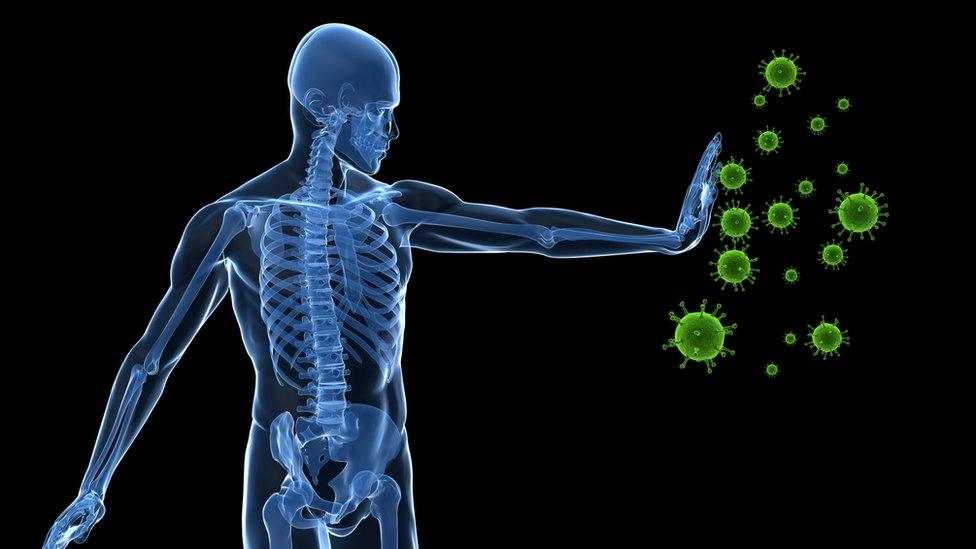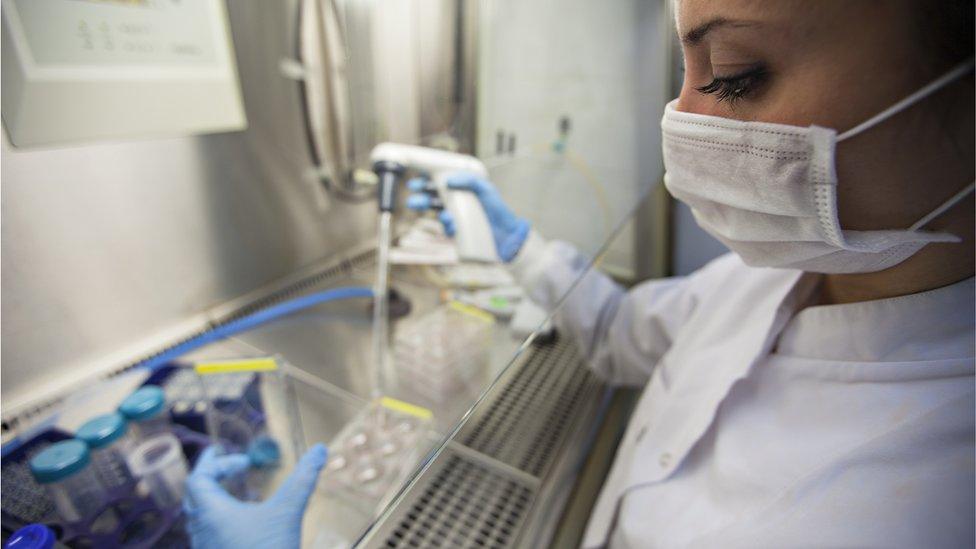Ageing immune system linked to cancer
- Published

A declining immune system was found to be a stronger reason for developing cancer than genetic mutation
The key to preventing age-related cancers may lie in the body's own immune system, new research suggests.
Scientists at the University of Dundee found an ageing immune system could be a stronger reason for developing cancer compared with genetic mutation.
They have developed a mathematical equation to show the link and its impact on cancer rates.
They said the discovery could have "major implications" for the fight against the disease.
The team, which also included researchers from Heriot Watt University, the University of Edinburgh and the Institut Curie in France, analysed data on two million cancer cases over the 18-70 age range.
'Early days'
They confirmed that men were statistically more likely than women to be diagnosed with cancer, although the chances of developing the disease across both groups rose dramatically with age.
Genetic predisposition, lifestyle and environmental factors also played a role in cancer diagnosis.
However, researchers noticed that their mathematical model fitted the data better than the multiple mutation hypothesis.

Thea Newman, professor of biophysics and systems biology at the University of Dundee, said: "This is still very early days but if we are proven right then you could be talking about a whole new way to treat and prevent cancer.
"Nearly all of the mainstream research into cancer is based on how we can understand genetic mutations, target them and thereby cure the disease.
"We're not debating the fact that mutations cause cancer, but are asking whether mutations alone can account for the rapid rise in cancer incidence with age when ageing causes other profound changes in the body."
'Extremely relevant'
The researchers found that the immune system generally declined slower in women compared with men, allowing them to account for gender differences in cancer incidence.
This was also linked to the thymus gland, which produces T cells to circulate and kill dysfunctional cells or foreign agents in the body.
While the gland shrinks with age, it tended to do so faster in men compared with women.
Prof Clare Blackburn, an expert in thymus biology at the University of Edinburgh, added: "We believe that our findings are extremely relevant and show the need to take the immune system even more seriously in cancer research.
"In addition to mutations, this suggests we should also focus on how to boost thymus function in a controlled way."
The research, has been published in the latest edition of the Proceedings of the National Academy of Sciences.